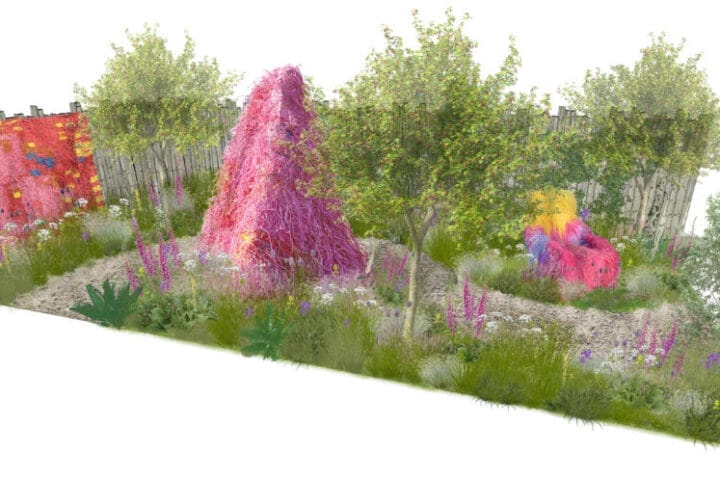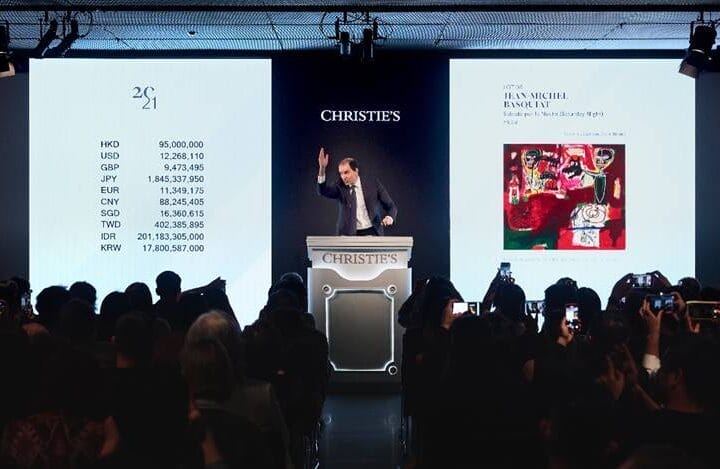The inaugural Sharjah Architecture Triennial opens to the public next week. The Rights of Future Generations exhibition launches with a four-day opening programme of screenings, discussions, and performances running Saturday 9 to Tuesday 12 November.
An interdisciplinary conversation that brings together architects, artists, anthropologists, researchers, performers, academics and musicians as well as policy-makers, the edition invites a rethinking of architecture’s role in an age of climate crisis, claiming that intergenerational rights are at the heart of our struggle against climate change and holding architecture accountable for securing the rights of future generations.
Situated on both the Gulf and Indian Ocean coasts, Sharjah is at the centre of millennia of migration and trade. The Triennial embraces the city’s history as a space for cultural exchange, platforming diverse stories and voices from across the Global South as alternatives to prevailing structures of extraction and exploitation. The UAE’s leading integrated environmental, recycling & waste management company Bee’ah is the Lead Sponsor of the inaugural edition of Sharjah Architecture Triennial.
Opening Programme
Each of the first three days unfolds along a perspective: Devotional Practices, Signs and Transmission, and Forms of Afterlife.
Exhibition participants and invited guests including Denise Ferreira da Silva, Jasbir K. Puar, Ghassan Abu Sitta, Tariq Ali, Fatou Kandé Senghor, Lawrence Abu Hamdan, Tuan Andrew Ngyuen, and the Ngurrara artist community will discuss their work in a series of forums on Saturday, Sunday, and Monday.
The opening programme also features new commissions by HaRaKa Platform/Adham Hafez Company and musician Nicolás Jaar, as well as performances by choreographer Bouchra Ouizguen and composers Dewa Alit & Gamelan Salukat. In collaboration with the curator, Ma3azef presents a line-up of musicians both emerging and established; amongst them, BLTNM, Nabihah Iqbal, Slikback, DJ Kampire, and Al Ahly Thikr Jamaah.
On the morning of 10 November, curator Adrian Lahoud and Hoor Al Qasimi – Chair of the Triennial’s Board of Directors – will speak at an introductory press conference about the inaugural edition of the Triennial and its theme.
Grounded in the vision of Rights of Future Generations and its commitment to advancing the protection of future generations’ fundamental rights in a world that is dramatically worsening in terms of climate change as well as socio-economic, gender, race and political dimensions, a Working Group chaired by Lumumba Di-Aping launches its work on Tuesday 12 November.
The day will focus on the moral, political and scientific issues surrounding climate change – the political economy of transformational transition aimed at radical reduction of greenhouse emissions – and the role of states in securing the rights of future generations. Speakers include: H.E. Thabo Mbeki (President of South Africa, 1999–2008); H.E. Dilma Rousseff (President of Brazil, 2011–16); Prof. Hoesung Lee and Prof. Youba Sokona (respectively Chair and Vice-Chair of the Intergovernmental Panel on Climate Change); H.E. Amb. María Fernanda Espinosa (President of the UN General Assembly, 73rd session); Prof. Ha-Joon Chang (Faculty of Economics, University of Cambridge); and Prof. Patrick Bond (University of Witwatersrand). The day closes with a solo piano performance by Maestro Abdullah Ibrahim dedicated to the future generations. In February 2020, Ibrahim will perform an original composition on the theme Rights of Future Generations with his new philharmonic orchestra.
Sharjah’s rich history has led to a distinctive 21st century landscape, where restored coral stone buildings and courtyards of historical fishing and pearling societies stand with modern planned suburban neighbourhoods and multi-story urban centres. The opening events variously activate this layered architecture, with sites including the Sharjah Architecture Triennial primary venues Al-Qasimiyah School and Al Jubail Fruit and Vegetable Market which have been adapted for re-use led by Sharjah Architecture Triennial Advisor Mona El Mousfy, as well as Gallery 5 in the art spaces in Al Mureijah Square, the Mleiha archaeological site, and Africa Hall.
The opening programme and the exhibition are free and open to the public. The full schedule is available on the new RFGen webpage here.
The Triennial welcomes audiences and participants with diverse needs. For more information contact info@sharjaharchitecture.com.










